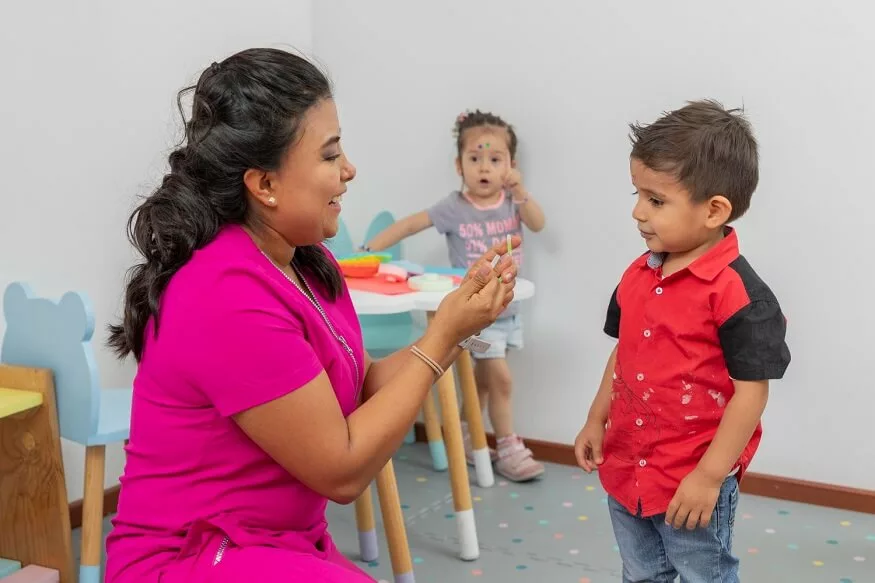Parenting is a remarkable journey filled with countless milestones, and one crucial aspect that deserves attention is instilling assertiveness skills in children. The ability to express oneself confidently is not just a valuable life skill but a foundation for fostering healthy relationships and sound decision-making. In this article, we delve into 15 key steps for raising assertive kids, aiming to nurture their self-esteem and enhance their communication abilities. These steps for assertiveness skills serve as a compass, guiding parents through teaching assertiveness skills, and empowering children to navigate the complexities of social interactions and decision-making with resilience and confidence.
Nurturing Assertiveness in Children: A Comprehensive Guide
- Understanding Assertiveness: To guide children toward assertiveness and teach assertiveness skills , start by helping them recognize and express their thoughts and feelings. Assertiveness isn’t just about speaking up; it’s expressing oneself clearly and respectfully. Encourage open conversations about emotions, creating a safe space for exploration. Share relatable examples, emphasizing the balance between self-expression and consideration for others. This foundational understanding forms the basis for cultivating assertive behavior, setting the stage for confident and empathetic communication.
- Model Assertive Behavior: Children learn significantly from the behavior modeled by their parents and caregivers. Demonstrate assertive behavior in your daily interactions. This can range from expressing your opinions during family discussions to setting boundaries with others. Children are more likely to adopt assertive traits when they observe them in their immediate environment.
- Foster Self-Expression: Creating a warm and supportive environment is vital for nurturing children’s self-expression. Establish a setting where your child feels free to share their thoughts and feelings without the fear of judgment. Listen attentively to what they express, even if your perspectives differ. This step goes beyond merely hearing their words; it involves recognizing and validating their emotions. By embracing their individual viewpoints, you cultivate an atmosphere of trust and confidence, laying the foundation for assertive self-expression.
- Teach Active Listening: Assertiveness goes beyond self-expression; it includes the crucial aspect of active listening. Instill in your child the art of attentive listening, ensuring that their assertiveness is accompanied by a sincere understanding of the perspectives of those around them.
- Role-Playing Scenarios: Practical engagement through role-playing scenarios can be a powerful tool for teaching assertiveness. Create various situations where your child can practice assertive responses. This hands-on approach helps them internalize the concept and develop the skills to apply it in real-life situations.
- Use Positive Reinforcement: Positive reinforcement plays a crucial role in shaping behavior. Acknowledge and praise your child when they exhibit assertiveness in a positive way. This positive feedback not only reinforces the value of their behavior but also encourages them to continue expressing themselves assertively.
- Discuss Different Communication Styles: Understanding the nuances of communication styles is essential for developing assertiveness. Explore with your child the concepts of passive, aggressive, and assertive communication. Discuss real-life examples to help them recognize these styles in various situations.
- Set Realistic Expectations: Setting realistic expectations is a key aspect of assertiveness. Guide your child in understanding what is achievable and what might be beyond their control. Realistic expectations empower them to communicate effectively and express their needs without setting themselves up for unnecessary disappointment.
- Problem-Solving Skills: Integral to assertiveness is the development of problem-solving skills in your child. Motivate them to view conflicts as opportunities for finding constructive solutions rather than resorting to avoidance or escalation. Guiding your child through effective problem-solving not only enhances their assertiveness but also equips them with valuable life skills. By encouraging a proactive approach to challenges, you empower your child to navigate interpersonal dynamics with confidence and resilience.
- Establish Boundaries: Help your child identify and communicate their boundaries. Knowing when and how to set personal limits is a crucial aspect of assertiveness. Establishing boundaries empowers your child to navigate social interactions confidently while respecting their own needs and comfort levels.
- Foster Independence: Fostering independence is a gradual but essential step in raising assertive kids. Provide age-appropriate opportunities for decision-making. Allowing them to make choices and experience the consequences fosters a sense of independence, contributing positively to assertiveness.
- Discuss Peer Pressure: Peer pressure is a common challenge in childhood and adolescence. Discussing this phenomenon with your child and equipping them with assertiveness strategies helps them resist negative influences. Teach them to assertively express their opinions and decisions in challenging situations.
- Encourage ‘I’ Statements: Communication is a key component of assertiveness. Teach your child the importance of using “I” statements to express their feelings and needs. For instance, saying “I feel upset when…” rather than “You always…” encourages them to take ownership of their emotions and express them assertively.
- Seek Professional Guidance: If you notice persistent challenges in your child’s assertiveness, seeking professional guidance can be beneficial. A child psychologist or counselor can provide insights and strategies tailored to your child’s specific needs, fostering healthy assertiveness.
- Celebrate Differences: The fifteenth step in nurturing assertiveness in your child involves fostering an appreciation for diversity. Encourage your child not only to accept but to celebrate differences. Teach them the importance of respecting varying opinions and learning from diverse perspectives. This inclusive approach to assertiveness goes beyond mere self-expression; it cultivates an understanding and empathy for the rich tapestry of human experiences. By celebrating differences, your child learns to navigate the complexities of a diverse world with an open heart, promoting a society built on mutual respect and understanding.
Also Read: Reasons Why Tickling Kids Can Be Harmful
The incorporation of these 15 key steps for assertiveness skills into your parenting approach establishes a comprehensive framework for nurturing assertiveness in children. Consistency in applying these strategies serves as the cornerstone for empowering your child to navigate relationships, communicate effectively, and make confident decisions. This holistic approach is designed to foster a resilient and assertive mindset, laying a robust foundation that extends beyond specific situations to become an integral part of your child’s character. As a parent, you become a guiding force, shaping not just individual interactions but also contributing to the development of a confident, assertive, and socially adept individual.
Also Read: Empowering Kids: Teaching Good Touch Bad Touch
At EuroSchool, we recognise the pivotal role assertiveness skills in children play in shaping confident and resilient individuals. Our educational approach extends beyond academic excellence to encompass essential life skills. In our nurturing environment, we aim to instill the principles of assertiveness through interactive learning, real-world scenarios, and personalized guidance. By integrating these crucial skills into our curriculum, we empower students to express themselves with clarity, navigate social interactions effectively, and embrace challenges with confidence. EuroSchool is committed to fostering assertive traits that go beyond the classroom, preparing students for success in both their academic journeys and future endeavors. Together, let’s shape assertive leaders who approach life with resilience, empathy, and a strong sense of self.










